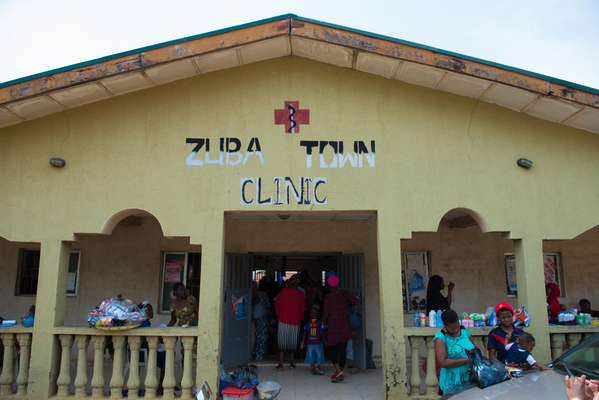As part of activities to mark the 2016 Universal Health Coverage Day that is observed on Monday, 12 December, WaterAid is calling on healthcare professionals to join its global petition to ask national governments to accelerate their plans for safe, reliable access to water, sanitation and hygiene in all health facilities.

The Universal Health Coverage Day is intended to highlight the need for all to achieve good health and access to quality healthcare without incurring financial hardship. An essential element to good health and effective healthcare is access to clean, safe water to drink, a decent private toilet and the ability to practice good hygiene, including handwashing with soap.
According to WaterAid, Nigeria boasts the fastest-growing economy on the African continent. Yet, one-third of its population do not have access to clean water, two-thirds do not have access to basic, private toilets, and one in three healthcare facilities in Nigeria do not have access to water.
At the Zuba Primary Health Centre in Abuja for instance, healthcare staff report that there is no water supply; even the water they buy each day is not safe to drink.
Martina Ohaegbulem, 56, the deputy nurse in charge of the Zuba Primary Health Centre, said: “We need a borehole, or a well if one can be dug in the compound. We need more toilets for both the staff and patients. We need running taps and other things, too. We need improvement in handling those things – handwashing basins and similar things. We buy the soap we use from the little money we are paid for deliveries (of babies). It’s the money for deliveries we use in paying some of our workers, the volunteers, but we also buy the soap from that same money.
“We need improvement as we are not functioning efficiently. But we are trying our best with what we have.”
WaterAid Nigeria Country Director, Dr Michael Ojo, said: “All too often, healthcare conditions in many low- and middle-income countries are characterised by unreliable or non-existent water supplies, inadequate sanitation, and unsafe medical waste disposal. This situation leaves healthcare professionals unable to properly care for patients, and leaves doctors, midwives, nurses, cleaners and patients alike at serious risk of infection and illness.
“Good health, dignified and clean healthcare, and effectively combatting the rise of antimicrobial resistance requires clean water, good sanitation and good hygiene practice in homes, in schools and in hospitals and health centres, all around the world.”
The staff and patients in Zuba Primary Health Centre in Abuja appear not to be alone, as a World Health Organisation (WHO) report reveals that 42% of healthcare facilities in sub-Saharan Africa do not have access to water and that, in Nigeria, almost a third (29%) of hospitals and clinics do not have access to clean water and the same percentage do not have safe toilets, while one in six (16%) do not have anywhere to wash hands with soap.
According to WaterAid Nigeria’s own recent assessment of water, sanitation and hygiene (WASH) facilities in Primary Healthcare Centres (PHCs) conducted in our six focal states – Bauchi, Benue, Enugu, Ekiti, Jigawa and Plateau – 21.1% of the facilities assessed did not have at least one toilet facility and none met the National Primary Health Care Development Agency (NPHCDA) minimum standard of separate toilet facilities for males and females, as well as separate toilet facilities for staff and patients.
Only 27.6% of the 242 PHCs assessed met NPHCDA minimum standard of access to a motorised borehole. Across the six states, only 49 (20.2%) of the PHCs had handwashing facilities in toilet facilities. Handwashing facilities were observed in delivery rooms in only 133 (54.9%) of the facilities assessed. The ward and consulting rooms had handwashing facilities in 64 (26.4%) and 74 (30.5%) of the facilities respectively, suggesting poor hygiene practices in the health centres.
